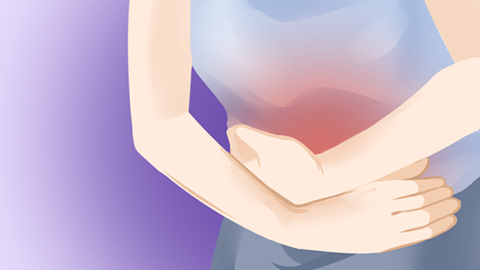What should I do if I have diarrhea accompanied by intermittent abdominal cramps?
Generally speaking, "la du zi" refers to diarrhea, and "fu zi" refers to the abdomen. Paroxysmal colic describes intermittent episodes of cramping abdominal pain. Diarrhea accompanied by paroxysmal colic may be caused by food intolerance, excessive mental stress, exposure of the abdomen to cold, acute gastroenteritis, ulcerative colitis, or other reasons. It is recommended to seek timely medical consultation to identify the underlying cause and receive appropriate general treatment, medication, or surgical treatment under the guidance of a qualified physician. Detailed explanations are as follows:

1. Food Intolerance
When intolerance to specific foods exists, undigested food components ferment in the intestines, producing gas that stimulates intestinal motility, leading to diarrhea with paroxysmal colic. This may be accompanied by bloating and increased flatulence. It is recommended to avoid consuming foods that cause discomfort—for example, individuals with lactose intolerance should reduce dairy intake, and those with gluten sensitivity should avoid gluten-containing foods.
2. Excessive Mental Stress
Excessive mental stress caused by various physiological or pathological factors may lead to the secretion of hormones such as adrenaline and cortisol, which can stimulate intestinal contractions, resulting in diarrhea accompanied by paroxysmal colic. It is recommended to maintain emotional well-being, engage in appropriate physical activity, and communicate feelings with others regularly.
3. Exposure of the Abdomen to Cold
Frequent consumption of cold foods or long-term exposure to cold environments may cause the abdomen to become chilled, leading to irritation of the duodenum or colon, thereby causing diarrhea with paroxysmal colic. Symptoms may also include a cold sensation in the abdomen and cold extremities. It is recommended to keep the abdomen warm, avoid consuming raw, cold, or chilling foods, ensure proper local blood circulation, and improve the intestinal environment.
4. Acute Gastroenteritis
Acute gastroenteritis may occur when viruses, bacteria, or parasites invade the intestines and damage the intestinal mucosa. Inflammatory responses may lead to diarrhea and abdominal cramping. Symptoms may include nausea, vomiting, and fever. It is recommended to maintain adequate hydration to prevent dehydration. Follow medical advice to use medications such as norfloxacin capsules, amoxicillin dispersible tablets, ribavirin tablets, etc. In severe cases, seek medical attention promptly and intravenous fluid replacement may be required.
5. Ulcerative Colitis
Ulcerative colitis is a chronic inflammatory disease affecting the mucosa and submucosa of the colon and rectum due to abnormal immune responses. The inflammation of the colonic mucosa in patients with ulcerative colitis accelerates intestinal motility and increases fluid secretion. Simultaneously, the contraction of intestinal smooth muscle is stimulated, causing diarrhea accompanied by paroxysmal colic. Other symptoms may include mucus, pus, or blood in the stool. It is recommended to seek timely medical attention and follow medical instructions to use anti-inflammatory medications such as mesalazine enteric-coated tablets, prednisone acetate tablets, methylprednisolone tablets, etc. Severe cases may require surgical treatment.
In daily life, maintaining a regular routine, avoiding excessive mental stress, and consuming bland, easily digestible foods are recommended.






